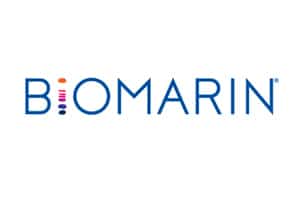
BioMarin announced a modest increase in net product revenues in the second quarter yesterday, but has its sights trained on the all-important filing of what will be a first-in-class gene therapy for haemophilia A later this year.
The US biotech reported a loss of $37.4m, which is double the mid-year loss from 2018. The results also did not meet Wall Street forecasts, with actual adjusted earnings at 9 cents per share compared to estimates of 16 cents per share.
In an earnings call discussing Q2 second quarter, Dan Spiegelman, chief financial officer of BioMarin, attributed the increase in net loss “to higher R&D expense for the expansion of all our late stage clinical programmes, and higher marketing and sales expenses in support of the commercial launches of Palynziq and Brineura”.
Revenues increased to $387.8m in this period compared to last year’s $372.8m, but below analyst estimates of $410.9m by the second quarter.
This was due primarily to lower than expected Aldurazyme sales, but the best prospects of an upturn in revenues in the short term rest on Palynziq.
A second-generation treatment for rare disease phenylketonuria (PKU), the newly launched drug reported $18.8m in sales. This was below the estimate of $19.6m of analysts William Blair, but in line with consensus of $18m.
BioMarin reported that at the end of Q2, 551 patients were successfully reimbursed on Palynziq, 410 of whom were previously Palynziq naïve, with an additional 158 patients currently enrolled and awaiting their first injection.
One of the challenges for the company is swapping patients over from its existing PKU treatment Kuvan, which will face generic competition from October 2020.
Around 37% of patients currently on Palynziq have switched from Kuvan, a figure the company will want to see maintained or increased to sustain the new drug’s growth.
Analysts at William Blair say they will expect to see the impact of EU approval for Palynziq in Q3, which should help boost revenues.
The game-changer for the company, however, is its gene therapy for haemophilia A, valoctocogene roxaparvovec, known as valrox.
While analysts have been jittery about some of the safety and efficacy data for the treatment, the company is now in pole position to become the first to reach the market with a one-time gene therapy which can offer a potential cure for many patients. Results from its trials show the therapy can free patients from infusions of blood clotting protein and produced a 96% reduction in mean annual bleed rates.
Jean-Jacques Bienaimé, chief executive officer of BioMarin commented:

Jean-Jacques Bienaimé, CEO, BioMarin
“During the first half of 2019 we laid the foundation for a number of significant milestones anticipated over the coming months. We recently announced our plans to submit marketing applications for valoctocogene roxaparvovec gene therapy for severe haemophilia A in both the United States and Europe,” said Bienaimé.
“We expect to submit both applications in the fourth quarter of this year based on recent interactions with health authorities in those regions,” he added.
BioMarin will also hope to extend the commercial success of Brineura, its Batten disease therapy. The company faced a setback when the UK’s cost watchdog NICE rejected the therapy following a year-long negotiation in February.
Analysts at William Blair say they continue to rate shares of BioMarin as ‘Outperform’ given its leadership position in the rare disease industry, plus its late-stage development pipeline led by valrox and vosoritide, its late stage candidate for achondroplasia, (the most common form of dwarfism) which they say have potential to drive significant growth in the next few years.




